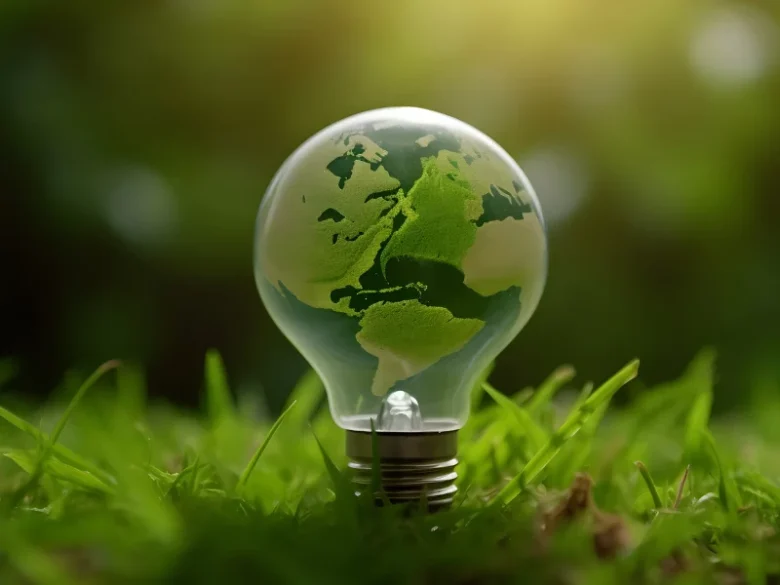Solar energy and sustainability have become essential terms in the debate on climate change and the quest for renewable energy sources. Faced with the urgency to address environmental impacts, solar energy emerges as one of the most viable and promising solutions for the future of sustainability.
We will discuss how expertise in photovoltaic installation is crucial to ensuring the efficiency of this type of energy.
The Need for Sustainable Energy
Living in an era of sustainability is crucial for the environment. The generation of electrical energy has a direct impact on the environment, making it essential to transition to clean energy sources, such as solar power.
This alternative contributes to environmental preservation and aligns with ESG (Environmental, Social, Governance) guidelines, promoting a sustainable future in harmony with nature.
Transforming the current energy matrix and encouraging the use of renewable energies are indispensable steps to ensure a sustainable future.
The Potential of Solar Energy
Solar energy, in its various forms, holds immense potential to be a significant source in the global energy mix. By using solar panels, it is possible to capture the sun’s radiation, which is, by its nature, an inexhaustible resource. Thus, you gain access to a clean and affordable energy source.
Photovoltaic Solar Energy
Photovoltaic solar energy is generated when photons in sunlight are converted into electrical energy. This process takes place in photovoltaic cells, usually grouped into panels. Photovoltaic systems typically include:
1. Solar panels.
2. An inverter to convert direct current into alternating current.
3. Support structures.
4. Wiring and electrical connectors.
Photovoltaic systems can be installed in homes, businesses, and large solar plants, allowing for a considerable expansion of solar generation.
Solar Thermal Energy
In addition to electricity generation, solar energy can be used for thermal energy production. This method is particularly effective for water heating. By opting for solar energy, you are choosing an alternative that:
1. Reduces dependence on fossil fuels.
2. Decreases greenhouse gas emissions.
3. Contributes to sustainability.
4. Generates long-term savings.
Solar energy and sustainability, therefore, have the potential to provide electricity sustainably and also establish themselves as an economically viable alternative over time, considering savings on energy bills and low maintenance costs.
Solar Energy and Sustainability: Emission Reduction
The adoption of solar energy and sustainability is a key strategy for reducing carbon emissions and mitigating climate change.
By using solar panels, you convert sunlight into clean energy, eliminating the need for fossil fuels and reducing the production of greenhouse gases.
Investing in solar energy contributes to the mitigation of adverse socio-environmental impacts associated with traditional energy generation. Remember that your choice plays a vital role in combating climate change and promoting a more sustainable future.
Choosing solar energy preserves resources and encourages a low-carbon economy.
Education and Awareness
Education is essential to promote and implement solar and wind energy in the context of environmental sustainability. Awareness of the benefits and feasibility of these clean energies is crucial to contribute to a greener future.
Participating in educational programs can help understand how these energies work and how they can be integrated into life and the community, expanding job opportunities in the sector.
Debates and forums on renewable energies are also fundamental to shape an informed public opinion and demand public policies focused on sustainability.
Prioritizing education and awareness in solar and wind energy plays an important role in the energy transition and in mitigating climate change, contributing to the practice and dissemination of sustainable initiatives.
Challenges of Energy Transition
When considering the incorporation of renewable sources into the Brazilian energy matrix, several challenges emerge.
The recent energy crisis highlighted the instability of traditional sources, such as hydroelectric power due to severe droughts, increasing interest in alternatives like solar farms and distributed energy generation.
The initial cost to implement solar energy and sustainability infrastructure is significant. The development of large-scale projects, such as solar farms, requires intensive capital and government incentives to become viable.
Ensure to consider regulatory policies and public support when assessing the transition to a more sustainable energy system. Regulations need to be adjusted to facilitate the integration of new technologies and ensure that the transition is fair and accessible to all sectors of society.
Solar Energy and Sustainability
Embracing solar energy is more than a trend; it is a necessity for a sustainable future. Expertise in the installation of this technology is crucial to ensure that its contribution to sustainability is maximized.”



